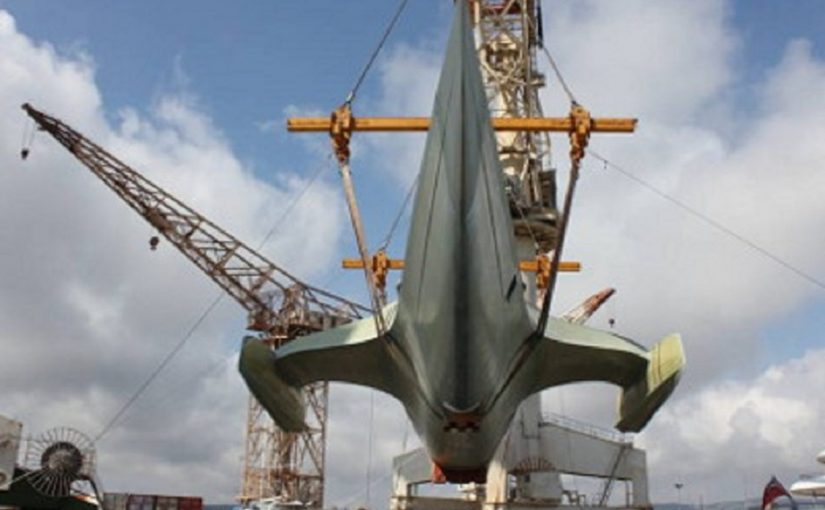Mozambique: August prime rate reduced to 17.20% - central bank
‘Hidden debt’ companies “viable if there’s political will”; waiting 2 months for PGR response – Lawyer

File photo
The lawyer for the ‘hidden debt’ public companies has been waiting for almost two months for a response from the Attorney General of Mozambique, criticising the lack of response as an example of “double standards”.
In a telephone interview with Lusa, lawyer Alexandre Chivale says that he sent a letter “received on August 18 at the Attorney General’s Office (PGR) of Mozambique” in which he criticised the audit carried out by consultant Kroll on the debt of three public companies, and regrets that he has not yet received any response, unlike other cases.
“In the same way that the PGR always appeared from statement to statement to give information following the criticisms of Palomar and Privinveste, we are surprised that it does not do so this time,” the companies’ lawyer said.
The interview with Chivale was made after financial news agency Bloomberg released an article this week detailing a letter sent by Chivale & Associates to the Attorney General’s Office criticising some of the findings in the Kroll report.
Also Read:“You cannot sell the sovereignty of Mozambique on the whim of an audit” – Lawyer
In the first interview granted since the hidden debt scandal broke in April 2016, the lawyer goes further and says that “if in those cases the PGR said something, confirming that it had received a letter and made corrections. But in our case, unfortunately and to some surprise, we do not see the same behaviour. We believe however that they will do so, or we will be facing two different sets of standards”.
The lawyer recalls cases of criticism of two financial companies involved in the commercial transactions of Mozambique Asset Management (MAM) and Proindicus, which led the country to default, and said that he expects the same treatment from the Mozambican Attorney General’s Office.
“We expect the PGR to do the same as it did with Palomar and Privinvest. On the various occasions it was criticised [by those companies], it put out communications, and we hope it will do the same this time,” he said.
Companies are viable if there is political will
Chivale also says the companies are economically viable, but warns that there is a lack of political will to move forward with some projects.
“It is up to the government to show the political will to proceed with the project” [of monitoring and protecting the coast], Chivale said, giving several examples of the companies presenting projects that never materialised because of inertia on the government’s part.
“The concession contract of Proindicus, approved by the Council of Ministers, grants the exclusivity of protection of the coast to the company, that is, any company that is in the scope of exploitation of resources has to contract the services of Proindicus, but the contract has not yet been published in the Boletim da República [Official Gazette],” the lawyer, who represents Mozambique Asset Management (MAM), Ematum and Proindicus, complains.
Asked why this had not yet happened, Chivale forwarded the response to the government and added that the oil companies Eni and Anadarko had even been contacted, “but the project has not advanced because of the noise that was created”.
Also Read: IMF and World Bank were aware of ‘hidden’ loans in Mozambique – Chivale
Another example of the difficulties faced by the managers of these companies, “which were not taken into account in the Kroll report” account of their economic viability, relates to the transfer of yards for ship repair.
“The facilities were not available until January 2017. Only then did the contractor actually start building the yard. This has to be taken up with the ministries of finance and transport,” the lawyer said.
“The joint dispatch which was signed in August 2013 provided for the transfer of the shipyard to the State’s information and security services [SISE], which is the entity responsible for the integrated coastal area defence,” he adds.
“Therefore, given that Kroll’s audit began in November 2016, it was logical to not have access to the yard because it was not yet in the hands of the company,” he says, and “from the very first moment it was not the intention of the government and the managers to create public debt, but to make a profit”.
Regarding the future of these companies, the lawyer is optimistic, and says that he is not alone. “The creditors, VTB banks and Credit Suisse did not lose their patience and trigger guarantees, which means that they continue to think businesses are viable.”
The lawyer says that “at the level of the board of directors, everything has been done to enable companies and partners who say they want to establish partnerships with companies”.
Asked specifically about the role of the current president and former minister of defence Filipe Nyusi in this case, namely on whether he would have knowledge of the loans, Chivale replied: “These companies have done everything to ensure the operationalisation of the integrated defence system. On all the other government management matters, it is not the companies’ responsibility to speak out. Our reaction is clear and already states the position of the companies vis-à-vis Kroll.”












Leave a Reply
Be the First to Comment!
You must be logged in to post a comment.
You must be logged in to post a comment.